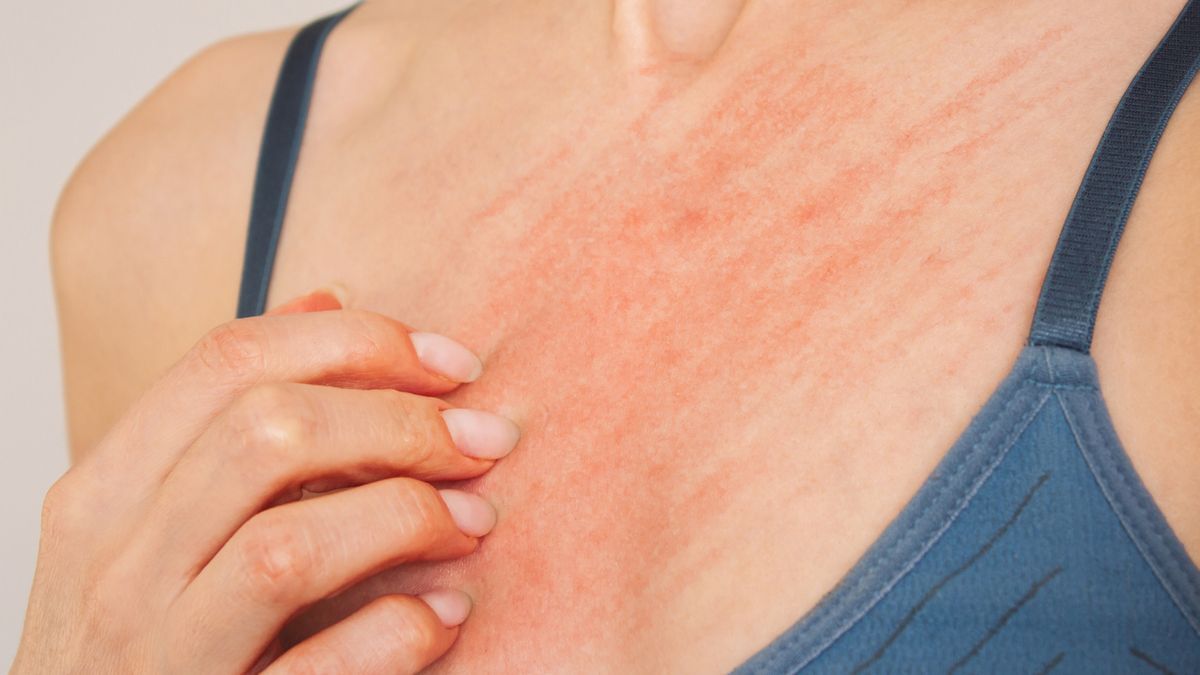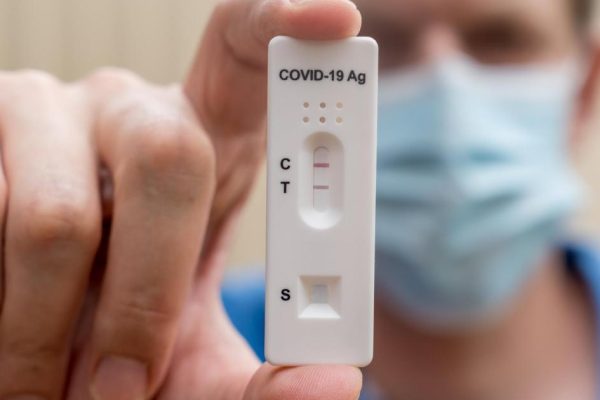UK NEWS – A surge in scabies cases across the UK has led doctors to issue a critical public warning about the importance of recognizing and treating symptoms of the infectious skin condition. The alarming rise in cases, particularly in areas of close population density, has raised concerns among healthcare professionals who fear that the social stigma associated with scabies may be preventing some from seeking the necessary medical attention.
Scabies is a skin infestation caused by tiny mites, Sarcoptes scabiei, that burrow into the skin, laying eggs that can cause intense itching, skin irritation, and a distinct rash. Often mistaken for other skin conditions, scabies is highly contagious and can spread rapidly among individuals in close proximity, making environments like dormitories, care homes, and crowded households particularly vulnerable to outbreaks.
According to the Royal College of General Practitioners (RCGP), scabies has traditionally been less common, but this recent spike in cases is raising concerns. Professor Kamila Hawthorne, Chairwoman of the RCGP, has noted that scabies cases are now “above the five-year average and rising,” indicating a growing trend that requires attention and understanding.
Scabies Cases Surge: A Closer Look at the Statistics
The latest NHS data reveals that 3,689 cases of scabies were diagnosed in hospitals across England in the past year, compared to 2,128 cases the year before. Regions in the north of England have been particularly affected, with healthcare providers witnessing a surge in patients reporting symptoms. Professor Hawthorne has emphasized that while scabies may not be life-threatening, if left untreated, it can lead to complications such as secondary skin infections or exacerbate existing conditions like eczema.
In addition, health officials have noted a pattern of increased cases among people in high-density living arrangements, which often include shared spaces. University dormitories, care homes, and families living in close quarters are most at risk. The social stigma surrounding scabies, often misconstrued as a “dirty” or “unsanitary” condition, may prevent individuals from seeking early treatment, contributing to the spread.
Symptoms and Signs: When to Be Alert for Scabies
Recognizing scabies symptoms early is key to preventing its spread and reducing discomfort. Here’s what to look for:
- Intense Itching: This is often the first symptom people notice, typically worsening at night.
- Rash and Red Spots: The rash may appear as small, raised red spots, sometimes accompanied by thin burrow tracks. The appearance of the rash varies by skin tone, as red spots are less visible on brown or black skin, though the raised bumps can often still be felt.
Scabies can take up to eight weeks to fully show symptoms after the initial exposure. This delayed onset increases the risk of the infestation spreading before individuals even realize they are infected. Those experiencing any of these symptoms are strongly advised to consult with a pharmacist or doctor for further guidance on treatment.
Treatment Essentials: How to Safely Treat Scabies
The NHS advises a two-step treatment process using a cream or lotion available from pharmacies. This topical treatment, typically applied from the neck down, is effective in killing the mites but must be repeated one week later to eliminate any newly hatched mites. Here are the critical steps:
- Apply the Treatment: Ensure that the cream or lotion is applied thoroughly over the entire body, focusing on areas with noticeable itching or rash.
- Repeat After a Week: To effectively rid the body of the mites and eggs, repeat the treatment after one week as directed by a healthcare provider.
- Treat All Close Contacts: Because of scabies’ high contagion rate, all members of the household, even those not showing symptoms, should undergo treatment simultaneously to prevent reinfection. The NHS also recommends that anyone who has had intimate contact with the infected person within the last eight weeks be treated.
Special considerations apply to certain groups, including children under the age of two and pregnant or breastfeeding women, who should consult a doctor rather than relying on over-the-counter treatments.
The Importance of Timely Treatment
Though not a life-threatening condition, untreated scabies can have uncomfortable and sometimes serious consequences. If ignored, scabies can cause continuous itching, leading to breaks in the skin that make it susceptible to bacterial infections. In some cases, these secondary infections can lead to more severe skin conditions, further complicating a person’s health.
The RCGP and NHS have made clear the importance of prompt treatment to avoid both personal discomfort and community spread. Professor Hawthorne stressed, “If not properly treated, scabies can spread and increase a patient’s risk of complications, such as secondary skin infections or exacerbate pre-existing skin conditions.”
Preventing the Spread: Steps to Take If You Suspect Scabies
Due to the highly contagious nature of scabies, preventing its spread involves both medical treatment and rigorous hygiene practices:
- Clothing and Bedding: All clothing, bedding, and towels used by the infected person should be washed in hot water (at least 60°C) to kill any lingering mites.
- Daily Cleaning: During the treatment period, frequent cleaning and vacuuming of living spaces can help reduce the likelihood of reinfection.
- Avoid Direct Contact: Limiting skin-to-skin contact is crucial while undergoing treatment to avoid passing the mites to others.
Individuals in densely populated settings, such as dormitories or care homes, should remain vigilant. Educational institutions and care facilities have been encouraged to raise awareness and ensure those exhibiting symptoms are directed to appropriate treatment options.
Addressing the Social Stigma Surrounding Scabies
A key challenge in managing the scabies outbreak is overcoming the social stigma associated with the infection. Misinformation has led some to mistakenly associate scabies with poor hygiene, causing individuals to delay seeking treatment. The mites responsible for scabies can infest anyone, regardless of cleanliness or lifestyle. Scabies spreads quickly and indiscriminately, especially in environments where close contact is unavoidable.
Healthcare professionals emphasize that scabies is no indication of poor hygiene and that it should be viewed as any other skin condition that requires prompt attention. Educational efforts have increased to help dispel misconceptions and encourage individuals to seek treatment without shame.
Moving Forward: A Call for Awareness and Responsibility
The resurgence of scabies cases in the UK highlights the need for increased awareness and proactive action from both the public and healthcare sectors. Medical professionals are urging individuals to monitor for symptoms and to seek treatment early to prevent further escalation of the outbreak. Addressing the outbreak will require not only effective treatment and hygiene practices but also a shift in perception that encourages people to view scabies as a manageable skin condition, free from stigma.
As the NHS and RCGP continue to monitor the rising cases, they stress that a collective effort is necessary to bring scabies back under control. From individuals in communal settings to healthcare providers, everyone has a role to play in curbing the spread of scabies and minimizing its impact on vulnerable populations.
By recognizing symptoms, seeking treatment, and maintaining good hygiene practices, communities across the UK can work together to control the spread of this itchy, irritating condition.






